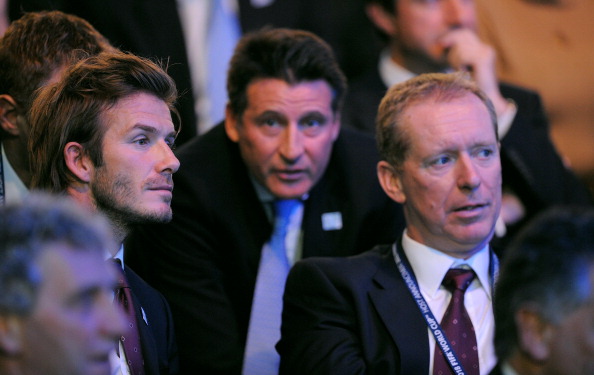By Duncan Mackay
June 5 – Sebastian Coe, the chairman of the London 2012 Olympics, has claimed that many of the problems that have overwhelmed FIFA and its President Sepp Blatter recently could have been avoided if they had adopted anti-corruption World Cup bidding reforms he had proposed more than two years ago.
Coe was appointed as the first-ever chairman of FIFA’s Ethics Committee when it was set-up in 2006 but stepped down in February 2009 to avoid a conflict of interests because he was involved in England’s disastrous bid to host the 2018 World Cup.
During his period there, the double Olympic 1500 metres champion sought to introduce new rules to avoid the kind of allegations that have rocked FIFA in recent weeks.
But he believes the organisation “took their foot off the pedal” on his proposals and are now paying the price.
“There is absolutely no doubt that the view of me and some of my colleagues on the Ethics Committee was that once they [FIFA] had moved from continental rotation to actually choosing countries outside of that norm, the structure of that bidding process was not fit for purpose,” Coe wrote in today’s Sunday Telegraph.
“There was no question about that.
“I suppose, for me, the only frustration was that when I got asked to help England’s bid for 2018, we were as a Committee at that stage putting a framework together for the bidding countries.
“I was driving it particularly because of the Olympic experience.
“It does appear to me that when I stepped down to do the England stuff, the thing that they took their foot off the pedal on was that.
“That now has to be a serious priority, to get some structure back into that.
“There’s no excuse about time here because, as we know to our cost, they have got until 2022 to figure that out.”
In a separate article published in the News of the World, Coe claimed he had tried to apply to FIFA the lessons he had learnt from the role he played in helping clean up the International Olympic Committee (IOC) following the Salt Lake City scandal that blew-up in 1998.
“The creation of the [Ethics] Committee was in part a response to a growing clamour for greater transparency within the organisation of football at the highest level,” wrote Coe, who has supported Chelsea for 42 years.
“Based on my involvement in the IOC 2000 Commission and the changes that were introduced there, I knew that although clearly a step in the right direction, this was going to be a lengthy journey.
“Originally the Ethics Committee could only review and respond to concerns raised from within its own membership.
“My colleagues on the Ethics Committee successful broadened this scope and gave the Committee access to independent legal advice.
“Had I not left the Ethics Committee to help England’s 2018 World Cup bid we would also have constructed a framework for those bidding countries and the members of the Executive Committee charged with the responsibility for selecting them.
“This now has to become a priority.
“There can never be another round of bids where there was so little trust in such a major decision.
“The selection of World Championship countries and cities is a task that quite rightly is left to those within the sport.
“The criteria for selection should be at all times clear and never ambiguous.”

Coe, who was in Zurich last December for the World Cup vote along with former England captain David Beckham and England 2018 chief executive Andy Anson, also appears to criticise the choice of Qatar as the host country for the 2022 World Cup.
He claims that the venue has not been chosen in the best interests of the players and supporters, warning that the hot conditions will make it a difficult tournament for both groups.
“There are two client groups that must always be at the top of the list when making this decision – and they are in this order: the competitors and the spectators,” he wrote.
“The competitors must at all times be in poll position.
“You simply cannot select a host that does not at all times recognise that they are providing sporting arenas for young people who have often dedicated half their young lives in pursuit of sporting excellence.
“These are the occasions that change players and athletes lives and create role models for a generation following in their footsteps.
“Of course, it is important to take these sporting events around the globe offering opportunities for young people wherever they live and whatever they believe – but this can never be at the expense of the welfare of the competitor.
“The problem I have with the [World Cup] decision that was made in Zurich before Christmas is that one of those host countries selected will be asking players to perform in an environment where if we put our hands on our heart we know cannot allow their full potential to blossom.”
Contact the writer of this story at zib.l1734876727labto1734876727ofdlr1734876727owedi1734876727sni@y1734876727akcam1734876727.nacn1734876727ud1734876727

